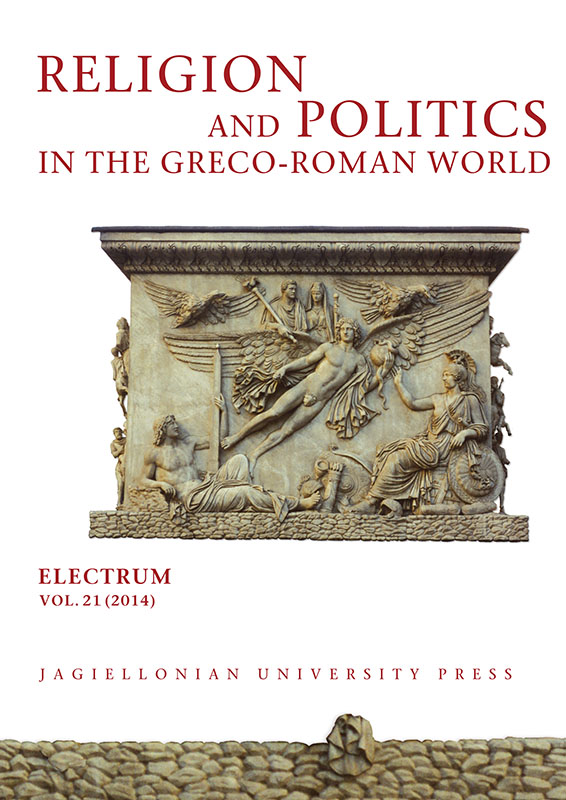Some Remarks on War Rituals in Archaic Italy and Rome and the Beginnings of Roman Imperialism
Some Remarks on War Rituals in Archaic Italy and Rome and the Beginnings of Roman Imperialism
Author(s): Maciej PiegdońSubject(s): Archaeology, Military history, Political history
Published by: Wydawnictwo Uniwersytetu Jagiellońskiego
Keywords: Roman imperialism; Roman expansion; war rituals; bellum iustum; devotio; clarigatio; ius fetiale
Summary/Abstract: The success of Roman expansion in the Republican period and the durability of the empire, which survived the fall of the Republic and continued to function for the next few hundred years under the rule of emperors, drew the attention of both scholars and rulers in subsequent eras. The Imperium Romanum became a model for other states that attempted to build their own empires in later times. What captures our attention in discussions on Roman imperialism is mainly one, so far unresolved, dilemma: was Roman expansion a result of the material and psychological benefits that individual social groups enjoyed as a result of the aggressive policy, or a product of the Roman society’s atavistic tendencies for using violence? This seems to be a very difficult question to answer. If we also consider other elements that cause aggression, such as fright, fear (metus Gallicus, Punicus, Etruscus, etc.) of something or someone and a desire to win fame or glory over an enemy, then solving the problem seems impossible indeed. Finding the right answer is not made any easier by the historical sources. On the one hand, they are very biased, as they hide the actual reasons under a thick layer of propaganda and apologetic slogans; so thick, in fact, that in many cases the Romans’ true motives seem incomprehensible. The majority of available accounts present the Romans as the defenders of the weak and their allies. This is the result of a strong propaganda rhetoric used by the Romans in order to justify themselves in contemporary eyes and in posterity too.We should also note one more element that could have had an influence on the development of an imperial mentality in Rome, i.e. the broadly defined civilisation and cultural milieu in which Rome came to be – Italy. A cursory comparison of various Roman war rites with the rituals of other inhabitants of Italy indicates that war was very much a part of the mentality of Italic communities. The presence of war rites in Italic tribes suggests that in Italy, war was an important element of existence. Rome was an integral part of this world, which meant that the presence of a strong military component and aggressiveness in the life of the Roman community was natural.
Journal: Electrum. Studia z historii starożytnej
- Issue Year: 2014
- Issue No: 21
- Page Range: 87-97
- Page Count: 11
- Language: English

